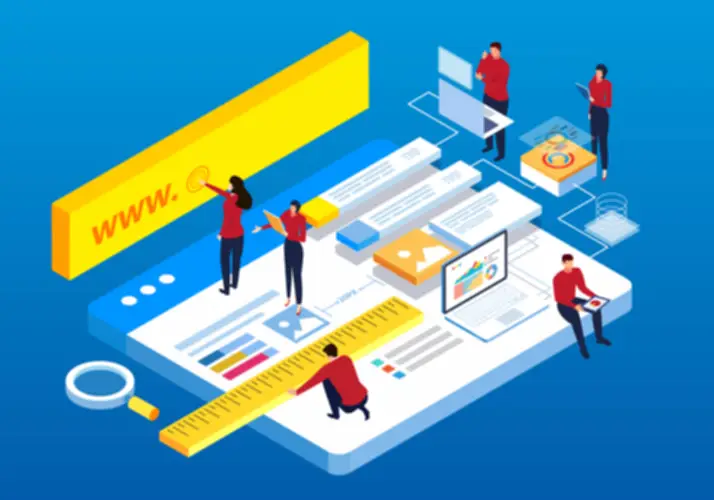Native apps are functions which are developed to run on platforms corresponding to iOS and Android. Notably, Kotlin allows us to develop Android functions whereas Swift and Objective C enable us to develop functions for iOS. Native applications are usually not cross-platform and are OS-specific. We are sure that after learning about above benefits of hybrid apps, you are satisfied to go ahead with it. Hybrid functions for smartphones are known to make use of simple HTML which makes them easy to take care of. Additionally unlike native apps, you don’t have to produce an app from floor zero every time a new OS is released.
Summary Of Variations: Web Apps Vs Hybrid Apps Vs Native Apps
Hybrid apps can supply certain options even without an web connection. By using native storage and caching methods, your customers can access previously loaded content or perform particular duties offline. This is advantageous in eventualities where a secure internet connection might not at all times be available. From productiveness software Mobile App Development to advertising and customer support instruments, web apps allow us to get work done rapidly…

What Sort Of Experience Do You Wish To Share?
It uses internet applied sciences like HTML, CSS, and JavaScript, then wraps itself in a local container. This permits these apps to run on each iOS and Android platforms, with out the necessity for separate development. A hybrid app improvement framework simplifies the replace course of for your app. Since modifications could be made to the shared codebase, updates are applied universally across platforms. Your customers needn’t obtain and install new versions manually, enhancing person convenience and making certain that everyone benefits from the most recent features and bug fixes. A hybrid application is a software app that mixes components of both native and internet functions.
If an utility doesn’t need support from a database, builders could make it operate offline. Are you ready to take your business to the subsequent degree with a cutting-edge hybrid app? Contact us today to discuss your project, and collectively, we’ll build an app that sets you aside in the digital landscape. Simply as a local espresso store might need completely different needs from a multinational chain, your app’s improvement strategy ought to replicate your unique circumstances. Hybrid apps, whereas repeatedly bettering, usually require additional safety layers.
As a matter of reality, there are native applications for computers that run on OS similar to Chrome OS. One of the most important tips that you have to contemplate whereas creating a hybrid utility for your small business. CI/CD (continuous integration, supply, and continuous deployment) may help you construct a hybrid app sooner and at a low price. It can help you build and test the app code and merge it right into a shared repository. Finally, these apps are available through app shops, making them simple to search out and download. They additionally supply the convenience of offline access, permitting customers to access content material and options even without an web connection.

Native purposes give higher performance when compared to net apps. However, the onus is on the user to maintain the native app efficiency. The user must obtain digital trust examples and install common software updates to maintain the app working optimally. Net purposes are slower and fewer responsive, but they offer you more control over performance. Hybrid apps supply a mixture of advantages from each net and native apps, however in addition they include their very own set of drawbacks. In this part, we’ll discover the pros and cons of most of these apps, so you can make an knowledgeable decision on whether a hybrid app is the best selection on your needs.

Why Appsflyer
This allows your growth groups to entry options like the digicam, GPS and sensors, enhancing the app’s functionality. Moreover, hybrid apps have garnered plenty of assist from the tech giants who drive the industry. For example, Google created Flutter to serve as its major cross-platform language. Shortly afterward, many different apps began using these languages as well. As these major players begin to put extra emphasis on utilizing solely these languages to create a hybrid app, native app languages will turn into less used. A few key gamers drive the tech trade, and when they make a decision on a coding language, everybody else will observe.
Smartphones have overtaken larger units as the first means individuals access digital info. Comparatively new on the scene, hybrid cellular apps have a unique code construction. Like internet apps, hybrid apps are constructed using internet technologies such as HTML, CSS, and JavaScript. However in contrast to net applications, hybrid apps don’t want browsers to run as a result of they are designed to feel and appear like native apps. These apps are downloadable from app shops and accessible by tapping relevant icons on mobile devices.
This unified development method simplifies the method, as the identical code can be deployed throughout different working systems. Similarly to the web-only application answer, the UI library must be recreated. Here is where https://www.globalcloudteam.com/ options like Ionic, NativeScript, Xamarin, React Native, and others step in.
However, the internal construction of native and hybrid apps could be very completely different. Today, app developers have to write the same software program in several languages. They also take a look at, package, and deploy the same software program for various platforms. As a result, new function releases, bug fixing, and software program maintenance turn out to be time-consuming and costly. Numerous design options, such as containers and service-oriented architecture, address the difficulty. Totally Different design approaches led to the creation of several types of net and cellular applications.
- Each time and price of growth are lower, however you can nonetheless upload them to an app store to get pleasure from the same reach and discoverability.
- To run a native app on a number of platforms, you need to develop and preserve an app for each platform individually — and doing this typically is out of price range for most businesses.
- For instance, an iOS software would use the WKWebView to show our application, whereas on Android it would use the WebView element to do the identical operate.
It’s much like talking via a translator – whilst you may get your message across, there may be slight delays or nuances misplaced in translation. However, for much less complicated purposes like content-based apps or primary enterprise tools, users might not notice any significant difference in performance. Hybrid growth presents an option for cross-platform deployment via shared codebases. This approach can influence development timelines and useful resource allocation, though groups must fastidiously evaluate whether it aligns with their specific requirements and efficiency wants.
This strategy saves time and assets compared to developing separate native apps for every platform. Developers construct native purposes particularly for the platform they are put in on. Native apps can benefit from a cellular gadget’s hardware, together with the accelerometer, GPS and digicam. Builders write native apps in the same language the platform’s working system is written in. For example, a local iOS app should be written in Objective-C and Swift. Now that we have underlined what hybrid purposes are and which types of businesses ought to make investments money into hybrid app improvement, let’s learn why building hybrid apps makes sense.
